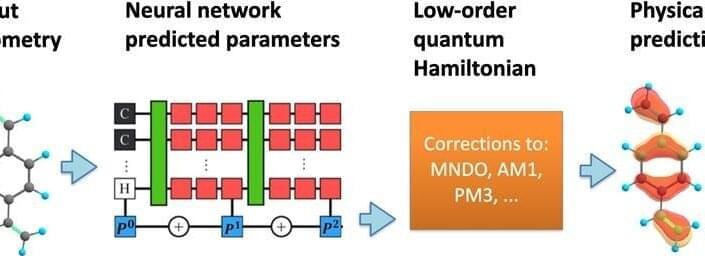The equations of quantum mechanics provide a roadmap to predicting the properties of chemicals starting from basic scientific theories. However, these equations quickly become too expensive in terms of computer time and power when used to predict behavior in large systems. Machine learning offers a promising approach to accelerating such large-scale simulations.
Researchers have shown that machine learning models can mimic the basic structure of the fundamental laws of nature. These laws can be very difficult to simulate directly. The machine learning approach enables predictions that are easy to compute and are accurate in a wide range of chemical systems.
The improved machine learning model can quickly and accurately predict a wide range of properties of molecules (Proceedings of the National Academy of Sciences, “Deep Learning of Dynamically Responsive Chemical Hamiltonians with Semi-Empirical Quantum Mechanics”). These approaches score very well on important benchmarks in computational chemistry and show how deep learning methods can continue to improve by incorporating more data from experiments. The model can also succeed at challenging tasks such as predicting excited state dynamics—how systems behave with elevated energy levels.
